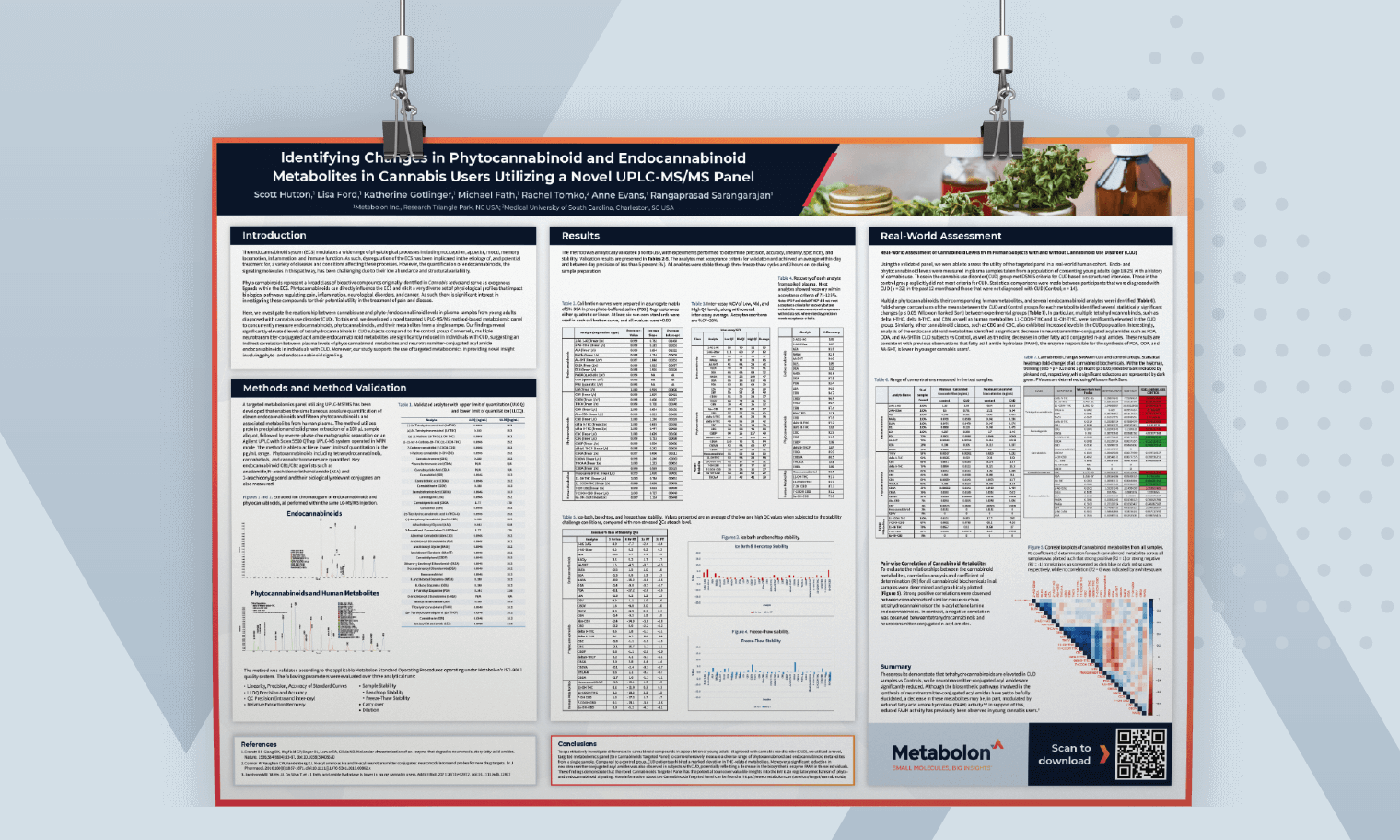POSTERS
Identifying Changes in Phytocannabinoid and Endocannabinoid Metabolites in Cannabis Users Utilizing a Novel UPLC-MS/MS Panel
The endocannabinoid system (ECS) modulates a wide range of physiological processes including nociception, appetite, mood, memory, locomotion, inflammation, and immune function. As such, dysregulation of the ECS has been implicated in the etiology of, and potential treatment for, a variety of diseases and conditions affecting these processes. However, the quantification of endocannabinoids, the signaling molecules in this pathway, has been challenging due to their low abundance and structural variability.
Phytocannabinoids represent a broad class of bioactive compounds originally identified in Cannabis sativa and serve as exogenous ligands within the ECS. Phytocannabinoids can directly influence the ECS and elicit a very diverse set of physiological profiles that impact biological pathways regulating pain, inflammation, neurological disorders, and cancer. As such, there is significant interest in investigating these compounds for their potential utility in the treatment of pain and disease.
View this poster to discover how we investigated the relationship between cannabis use and phyto-/endocannabinoid levels in plasma samples from young adults diagnosed with cannabis use disorder (CUD) and how we developed a novel targeted UPLC-MS/MS method-based metabolomic panel to concurrently measure endocannabinoids, phytocannabinoids, and their metabolites from a single sample.







